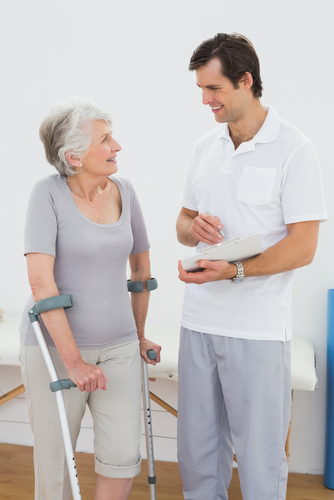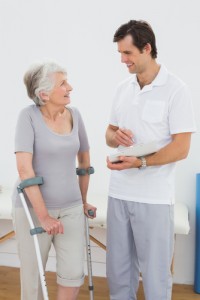New Pulmonary Rehabilitation Model for PH, COPD Provides a Healthy, New Perspective

 The Clark Fork Valley Hospital (CFVH) in Plains, MT has put forth an impressive, new model for treating lung-related diseases through the launch of its new Pulmonary Rehabilitation Program in March, which seeks to serve patients with a wide range of diagnoses, including COPD, pulmonary hypertension, obesity-related lung disease, and sarcoidosis. Due to the diversity of diagnoses, the program aims to provide a multidisciplinary team approach in treating the community, including the patient’s primary care provider, respiratory, and physical therapists.
The Clark Fork Valley Hospital (CFVH) in Plains, MT has put forth an impressive, new model for treating lung-related diseases through the launch of its new Pulmonary Rehabilitation Program in March, which seeks to serve patients with a wide range of diagnoses, including COPD, pulmonary hypertension, obesity-related lung disease, and sarcoidosis. Due to the diversity of diagnoses, the program aims to provide a multidisciplinary team approach in treating the community, including the patient’s primary care provider, respiratory, and physical therapists.
Following the patients needs, a treatment plan is developed where patients primarily work with respiratory therapists who coordinate and monitor their progress during course sessions. The sessions are twice per week for up to two hours, depending on the topic and treatment, and include both education and exercise.
[adrotate group=”4″]
The new program, which could very well come to be adopted elsewhere in the United states, seeks to cover the most relevant topics in treating and living with diseases such as COPD and Pulmonary Hypertension, such as breathing techniques, emotional well being, nutrition and activity of the patient. On the other hand, for exercise, patients can use a treadmill, elliptical machine, recumbent bike, ergometer, and weights.
Even when patients enrolled in pilot courses that introduce best practices for well being with PH and CPD, the strategy has been quite successful when helping the patients to be able to solve some of their own needs by themselves. As TaLoni DuBois, respiratory therapist and cardiopulmonary services manager, explains, “Patients are taking away so much more than exercise techniques from these courses, they are benefiting from a supportive environment and a new perspective. A lot of our patients have friends and family members who are so worried about them that they coddle them resulting in inactivity and co-dependence.”
[adrotate group=”3″]
With this program, patients are encouraged to complete their course and improve their situation in a safe, educational environment. Even after the course is over (after an average of 12 to 15 weeks), CFVH has started an extension of the program as an extra effort, making post-pulmonary rehabilitation exercise lab and therapist assistance available in case the need arises.







